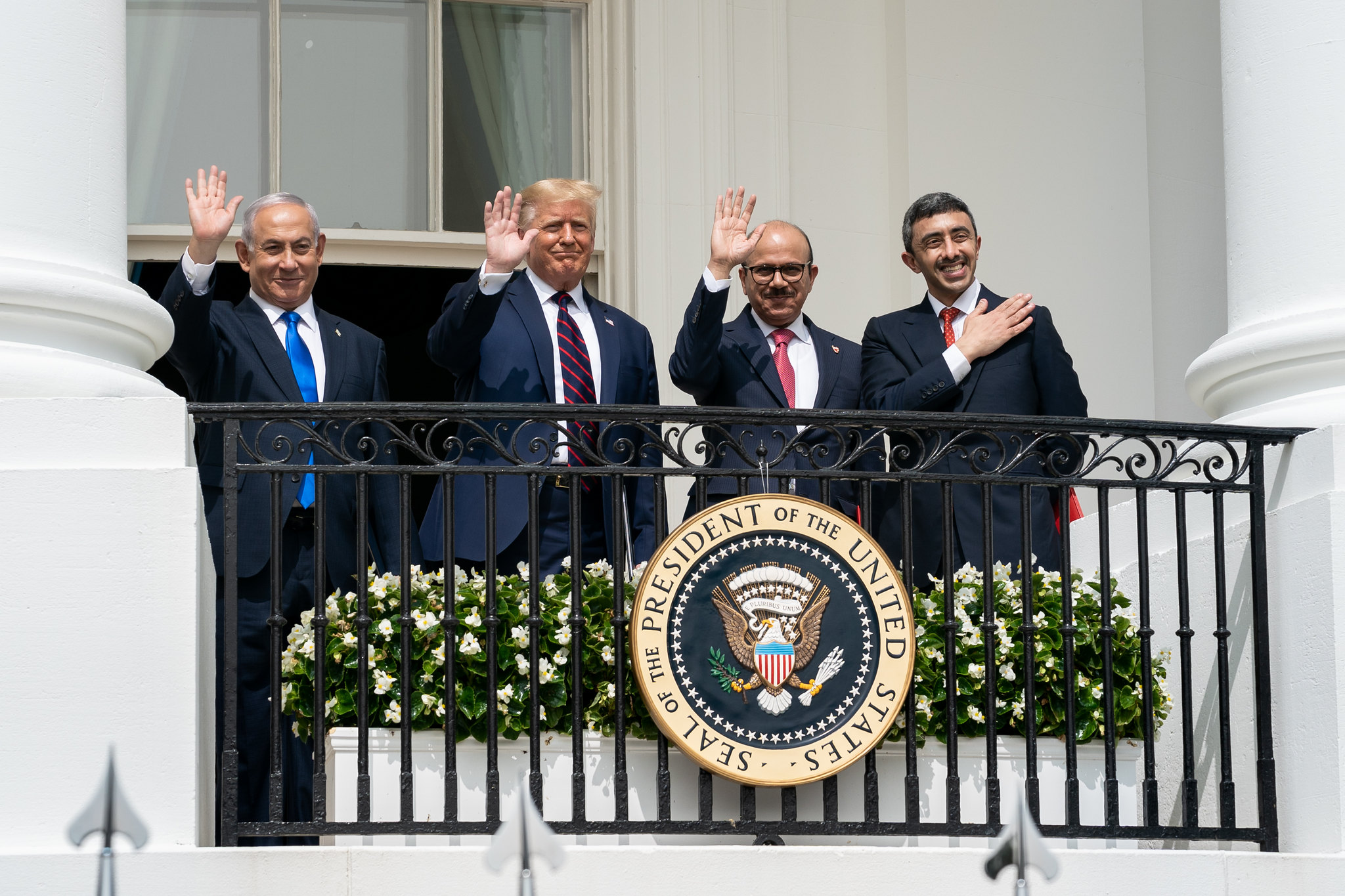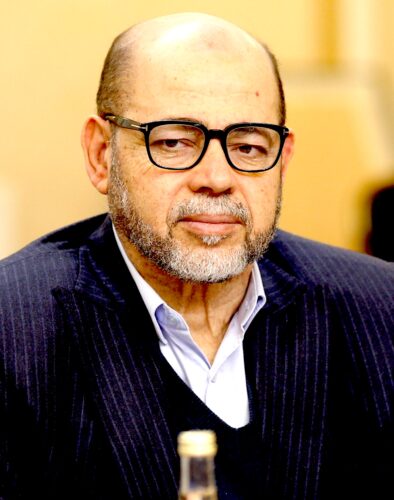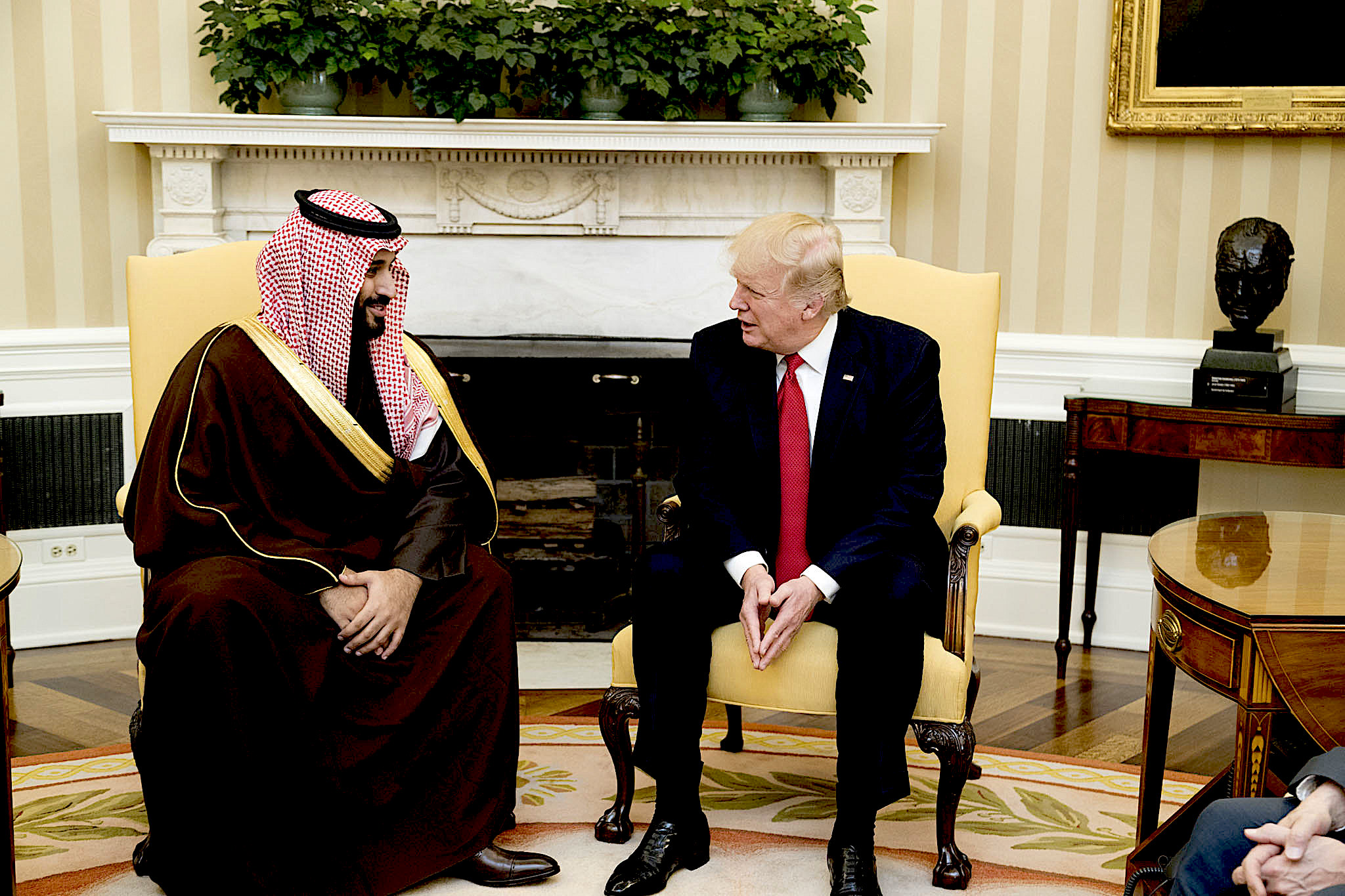The U.S., which has no history of nation-building, is embarking on an impossible undertaking in Gaza, writes M.K. Bhadrakumar.

Israeli soldiers in Gaza in February 2024. (IDF Spokesperson’s Unit, Wikimedia Commons, CC BY-SA 3.0)
By M.K. Bhadrakumar
Indian Punchline
 Seldom, if ever, does one get to pick up the threads of what one had written three days back as conjecture. But my prognosis that “the sea side view” of Gaza is mesmerizing President Donald Trump and his special envoy for the Middle East Steve Witkoff, two great real estate developers of modern times, is literally so.
Seldom, if ever, does one get to pick up the threads of what one had written three days back as conjecture. But my prognosis that “the sea side view” of Gaza is mesmerizing President Donald Trump and his special envoy for the Middle East Steve Witkoff, two great real estate developers of modern times, is literally so.
There is no question about what happened during Benjamin Netanyahu’s talks with Trump in the Oval Office on Tuesday. The visiting Israeli prime minister pulled off by far the biggest success story of his tumultuous 17 years in power as the longest-serving prime minister of his country by mooting the daring proposition that a long-term solution for the Gaza Strip lies in the takeover of that entire area by the U.S. and transforming it into the “Riviera of the Middle East” (Trump’s words.)
From what has emerged from the White House press conference on Tuesday, the U.S. which has no history of nation-building, is embarking on an undertaking that is both daunting in scope and impossible to achieve. Never mind, Netanyahu’s triumphalist look standing beside Trump exuded a measure of confidence that he has got a deal with Trump.
The deal involves the controversial idea of emptying Gaza Strip of its population and resettling the 1.8 million Palestinian inhabitants in certain unspecified countries and the reconstruction of the vacant land, which is roughly the same land area as Las Vegas or twice the size of Washington, D.C. Gaza’s coastline is 40 km long and Trump hopes to transform it into a watering hole for the rich and the famous, which will mean lots of menial jobs in the services sector for Palestinians eventually.

Witkoff with Trump at the White House in March 2018. (White House, Shealah Craighead)
Trump used the expression “take over” the Gaza Strip. He didn’t elaborate. Trump and Witkoff are two master-builders and they visualise the seamless potential of killing many birds with a single shot:
First and foremost — strengthening Israel’s security through the ethnic cleansing and resettlement in Gaza.
Second — restoring Israel’s regional dominance in the region from a medium- and long-term perspective.
Third — solving the intractable Palestinian problem.
Fourth — rendering obsolete the various outlandish ideas like the “two-state solution.”
Fifth — burying the very notion of a Palestinian state.
Sixth — achieving Israel’s regional integration through the Abraham Accords.
And, seventh, above all — creating a massive business spin-off for American companies for decades to come out of the development of the “Riviera of the Middle East.”
The U.S. strategy is quintessentially a continuation of what Trump pursued in his first term with a hands-on involvement in the West Asian region and the rebooting of its mediatory influence, which culminated in the signing of the Abraham Accords between Israel and a clutch of Arab oligarchies.

Celebrating the Abraham Accords, from left: Netanyahu, Trump, Bahrain’s Foreign Minister Abdullatif bin Rashid Al-Zayani and UAE’s Foreign Minister Abdullah bin Zayed Al Nahyan on Sept. 15, 2020. (White House, Andrea Hanks)
Trump spoke harshly about Iran and hinted at his readiness to use military means, if need be, to ensure Tehran will not develop nuclear weapons under any circumstances. Trump doubled down on the “maximum pressure” strategy to reduce Iran’s oil exports to zero. On the other hand, he left the door open for negotiations — provided Iran is amenable to the American conditions.
Trump’s thinking is anchored in the belief that the Israeli military operations against Hamas and Hezbollah and the regime change in Syria have significantly weakened Iran’s capacity to flex its muscles.
Trump commended Saudi Arabia’s positive role and anticipated its recognition of Israel as a distinct possibility. Trump claimed that several regional states are also willing to get on board the Abraham Accords.
Quite obviously, these are early days. Netanyahu disclosed that Trump will be consulting his aides as to how to go about developing the concept. Meanwhile, he vaguely signalled that he may not undermine the three-stage plan for the Gaza ceasefire, although the degradation of Hamas will remain a work in progress.

Mousa Mohammed Abu Marzook in 2002. (Council.gov.ru, Wikimedia Commons, CC BY 4.0)
To be sure, Hamas will outright reject the U.S.-Israeli plan. A Hamas delegation led by the deputy chairman of the politburo, Mousa Abu Marzook, went to Moscow over the weekend.
The Russian Foreign Ministry said on Monday that the presidential special envoy for the Middle East and Africa, Deputy Foreign Minister Mikhail Bogdanov, received the Hamas delegation and the two sides “stressed the importance of continuing systematic efforts to achieve inter-Palestinian unity as soon as possible, focusing on the political framework of the Palestine Liberation Organization, which envisions the establishment of an independent Palestinian state within the 1967 borders, with East Jerusalem as its capital.”
Clearly, Russians were clueless about Trump’s impending announcement. Bogdanov also received Israeli Ambassador Simona Halperin later on Monday.
The Foreign Ministry said “special attention was paid to the implementation of the agreement between Israel and the Hamas movement on a cease-fire in the Gaza Strip and the exchange of hostages. The Russian side confirmed its commitment to continue vigorous efforts aimed at the early release of those held in the enclave.”
Saudi Arabia has reacted sharply that it would not establish ties with Israel without the creation of a Palestinian state, stressing that its position over this issue is “firm, non-negotiable and unshakeable.”
The Saudi statement said Crown Prince Mohammed bin Salman has underlined the kingdom’s position in “a clear and explicit manner that does not allow for any interpretation under any circumstances.”

The Saudi crown prince meeting with Trump in Washington in March 2017. (White House, Shealah Craighead)
The unusually lengthy Saudi statement said the crown prince declared that Saudi Arabia “will not cease its tireless work to ensure the establishment of an independent Palestinian state with East Jerusalem as its capital. The Kingdom will not form diplomatic relations with Israel without this.”
The statement reiterated the kingdom’s “categorical rejection of the violation of the legitimate rights of the Palestinian people by Israel’s settlement, annexation and displacement policies.”
It added,
“The international community has a duty today to ease the deep humanitarian crisis that the Palestinian people are enduring. The people will continue to cling on to their land and their determination will not be shaken.”
Furthermore, the statement stressed,
“Permanent and just peace cannot be achieved without the Palestinian people receiving their legitimate rights in line with international resolutions and this issue has been clearly stipulated to the previous and current American administration.”
There has been an avalanche of criticism worldwide. Prima facie, Netanyahu lured Trump into a trap by enticing him with a seductive scenario of massive lucrative business in Gaza’s reconstruction.
Trump’s imagination is running riot, completely disconnected from ground realities. Such naïveté is fraught with the real danger of this move on Gaza blowing up in his face sooner rather than later and turning into an albatross for his presidency. This has all the making of a quagmire for the Trump administration.
Netanyahu is the winner here. Actually, the camera caught him smirking more than once while Trump was holding forth on his dream project of the “Riviera of the Middle East”.
The one tangible achievement for Netanyahu out of all this, nonetheless, is that a U.S. retrenchment in West Asia is simply out of the question now. Secondly, he can claim, when he’s back home in Tel Aviv, that Trump has his back. The arch survivor probably gets another lease of life in the shark-infested waters of Israeli politics.
M.K. Bhadrakumar is a former diplomat. He was India’s ambassador to Uzbekistan and Turkey. Views are personal.
This article originally appeared on Indian Punchline.
The views expressed are solely those of the author and may or may not reflect those of Consortium News.

Incredible bias in the UK media right now regarding the 3 Israeli males hostages that were freed today, every article comments on their frail condition etc.
Not once have they commented on the frail & gaunt looking freed Palestinians that have been released recently. Not one Palestinian has looked well, all were skin and bones.
This bias and extreme hypocrisy is breathtaking
I would like to see someone commenting on how the 2.1, or 2.2 million inhabitants of Gaza are now routinely counted as 1.8 million, as was the case in this article, as well as many others recently. That’s 300,000 to 400,000 human beings unaccounted for in Gaza. How has this number emerged? What is going on with this?
I’ve noticed the same. The numbers discrepancy needs to be investigated.
The number of deaths reported by the Palestinian Health Ministry are low because they report only what they can absolutely confirm. At bmj (.com) an article referencing a Lancet study suggests the number is much higher (as the observed devastation and concurrent siege would suggest).
Let’s not forget that Trump is a master showman. In front of the whole world he humiliated Bibi by declaring that the US now has to step in and fix the mess the Zionists created in Gaza. Listen to his words and look at Netanyahu’s tense body language. Trump may be creating plausible deniability here, appearing to deliver for his campaign donors, but when the impossible scheme collapses, Bibi will be left holding the bag. Hamas is not defeated, the Gazans are not leaving, and no one but Tel Aviv’s worst fanatics approves of this crackpot illegal plan. Trump’s a New York real estate developer in the style of Machiavelli’s Prince: he does not play a clean game, and he knows how to win.
M K Bhadiakkuma, third paragraph, first sentence, the US has no hiatory of ntion building . . .” damned sure no succeseful l history
Boston, I wonder if you classify Trump as a Zionist. Trump has historically show a strong tendency to sympathize with the Israelis. I’m simply curious of your though there.
You may be somewhat surprised by this. Early today on a CNN during an interview with a guest, the guest posited that Gazan’s should be responsible for the clean up of Gaza because they were responsible for it. You as I seem to think that is not so much the case. This the game ‘ being played.
His historical special treatment of Bibi is a strong indication Trump sympathises with the Zionist side of equation. Besides of litany of other reasons.
Joy I would submit that the exact numbers of residents in Gaza is a number, if known will become the base of arguments from both sides, however, I’m sure Israel had a very good idea of what the number was/is.
Netanyahu wasn’t humiliated. Trump isn’t fixing blame on Israel because “the mess” is a joint U.S./Israeli venture that has been in the works for decades. Frankly, the ultimate blame/responsibility lies with the U.S. with its endless military supplies. The U.S. has also insidiously “covered for” Israel at the U.N. & betrayed the meaning of “peace process” for generations (see Brokers of Deceit by Rashid Khalidi and/or Obstacle to Peace by Jeremy R. Hammond).
The Zionist plan for Greater Israel isn’t diminished in any way by Trump’s real estate salivation or any U.S. “ownership” of Gaza. The Zionist project beyond 1967 borders has always required the U.S. and will continue to do so.
The land grab real estate development, it should be noted, is also tied to offshore natural gas fields & West Bank resources.
~~~
Of course none of this will go so easily as Trump apparently cannot imagine. Arab resistance isn’t going away & no current defense against hypersonic missiles exists. Trump will plunge us into a war with consequences his “greatness” appears to not understand.
Oh wait! Never mind. There seems to be a pattern emerging. The president was just thinking out loud. He wasn’t being serious. Round and round we go.